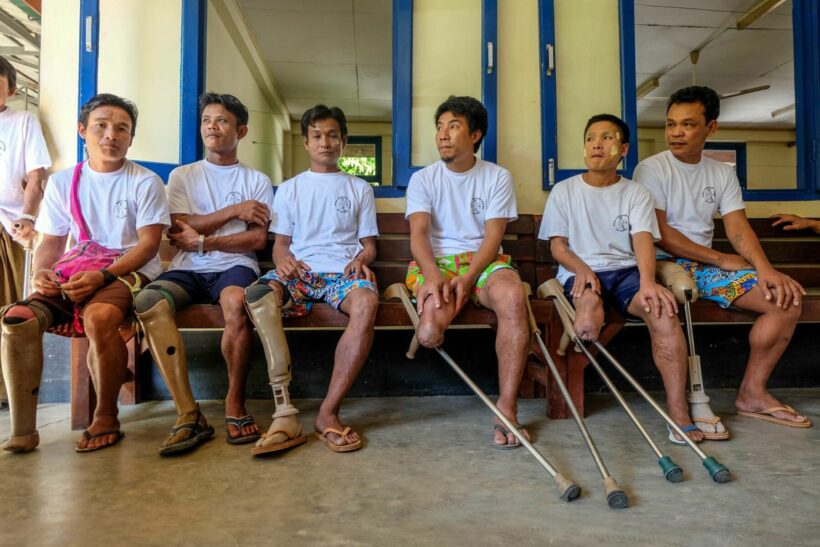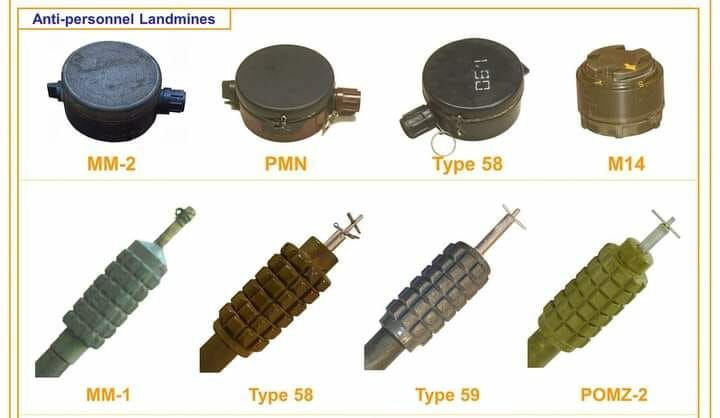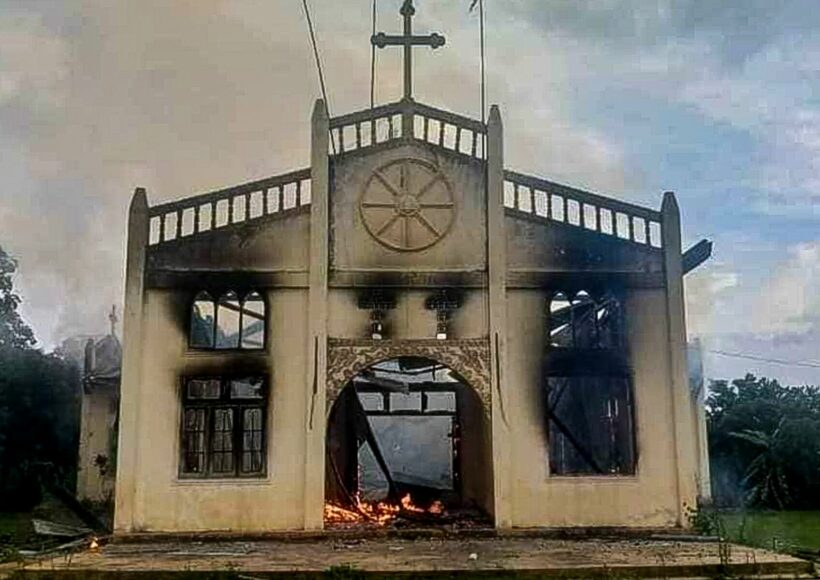Myanmar guilty of war crimes says Amnesty International

Amnesty International today accused the Myanmar military of committing war crimes by laying antipersonnel landmines in and around villages in Kayah (Karenni) State.
The non-governmental organisation revealed they have conducted an investigation in conflict-affected parts of the state and concluded the antipersonnel landmines are inherently indiscriminate and therefore contravene international law.
The landmines have been laid in and around villages in Kayah, a conflict-affected region near the border with Thailand, killing dozens of innocent people.
Amnesty International’s Crisis Response Deputy Director, Matt Wells, said the Myanmar military’s use of landmines is abhorrent and cruel.
“At a time when the world has overwhelmingly banned these inherently indiscriminate weapons, the military has placed them in people’s yards, homes, and even stairwells, as well as around a church.
“The world must urgently respond to the military’s atrocities against civilians across Myanmar. Countries around the world must cut off the flow of weapons to Myanmar and support all efforts to ensure those responsible for war crimes face justice.”
Amnesty spoke to 43 people in Kayah State’s Demoso, Hpruso, and Loikaw Townships between June 25 and July 8. These areas have been at the centre of fighting between the military and Karenni armed groups since May 2021, when conflict in Kayah State reignited following the military coup.
The Myanmar military is laying several types of landmines that it manufactures. These include the M-14, strong enough to blow off a victim’s foot, and the more powerful MM-2, which can remove a leg from the knee.
The M-14 and MM-2 are banned under customary international humanitarian law, as well as the 1997 Mine Ban Treaty, which 164 states have joined. According to Landmine Monitor, Myanmar’s military is the only state armed forces confirmed to have used antipersonnel landmines in 2020-21.

The Karenni Human Rights Group recorded that at least 20 civilians have been killed or seriously injured by landmines in Kayah State since June 2021.
On June 27 this year Amnesty discovered eight landmines around St Matthew’s church in Daw Ngay Khu village in Hpruso Township. The church was left as a shell. Twelve days earlier, on the afternoon of June 15, soldiers also burned down the priest’s house next door.

Soldiers have placed landmines in people’s yards, at the entrance of homes, and outside toilets, and in at least one documented case, soldiers boobytrapped a house stairwell with a trip-wire improvised explosive device. They have also placed landmines on paths to rice fields.
Senior Crisis Adviser at Amnesty International, Rawya Rageh said the military’s depraved use of landmines in homes and villages will continue to have devastating effects on civilians in Kayah State for years to come.
“We know from bitter experience that civilian deaths and injuries will mount over time, and the widespread contamination is already blocking people from returning to their homes and farmland. Myanmar’s military leadership should immediately end its use of landmines and join the majority of the world in supporting the Mine Ban Treaty, which includes provisions for demining and victim assistance.
“There is an urgent need for a scaled-up humanitarian response that addresses rising food insecurity and ensures proper rehabilitative, psychosocial, and other needed care for landmine survivors, as well as adequate planning for and resourcing of post-conflict demining operations to clear contaminated areas.”
SOURCE: Amnesty International
Latest Thailand News
Follow The Thaiger on Google News:


























